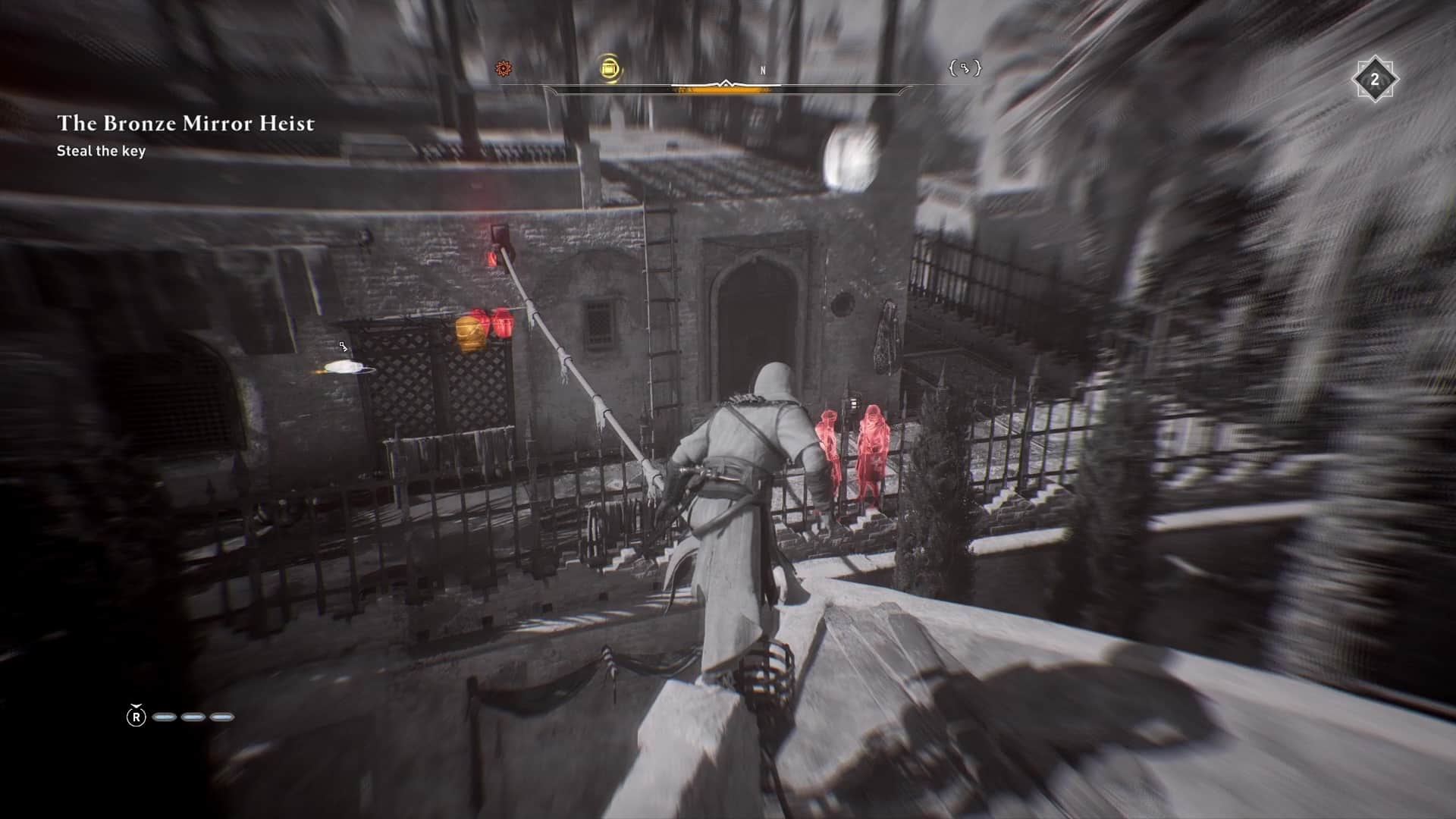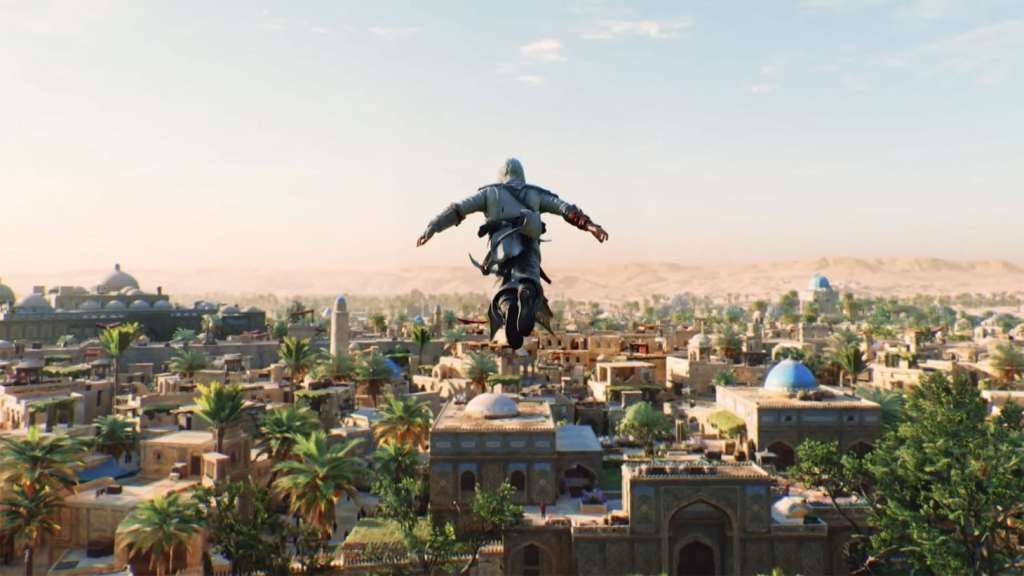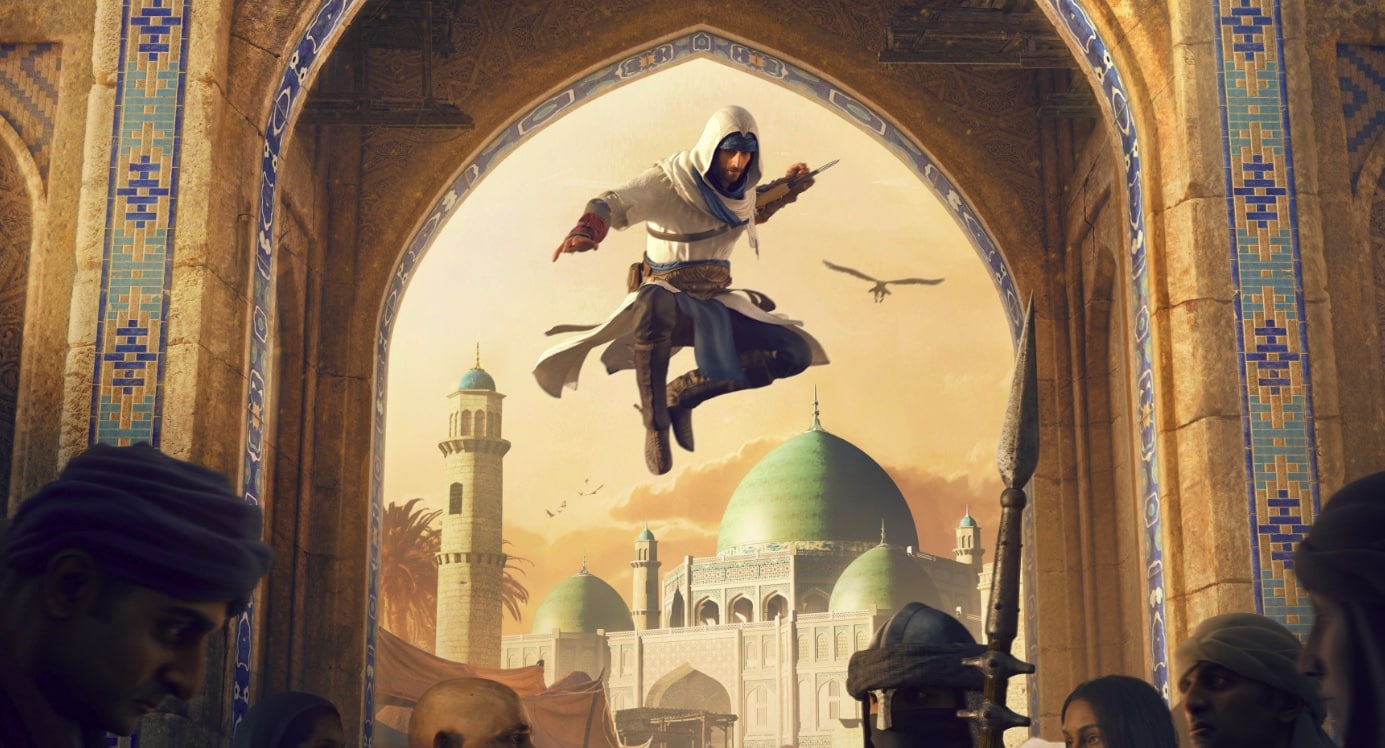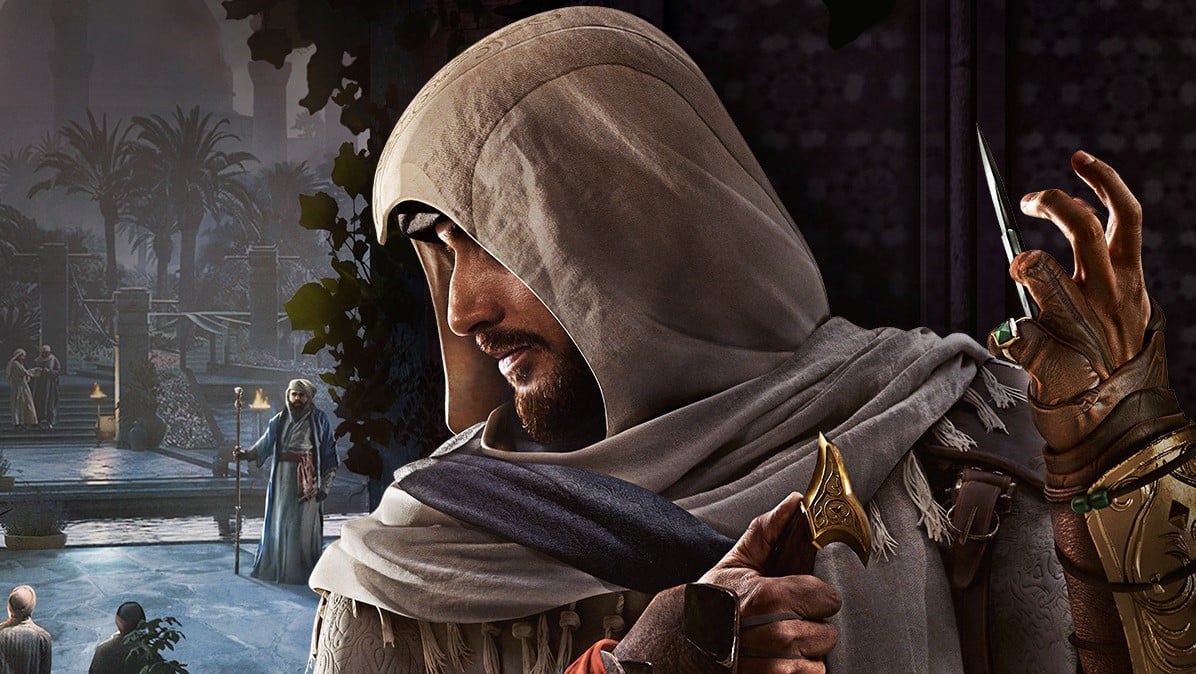The Assassin’s Creed franchise has been on a steady course of one-upmanship over the last few years, with each chapter in the long-running tale expanding a core mythos, extending worlds, bringing players into a dense narrative charting thousands of years of human history. Yet with Assassin’s Creed Mirage, developer Ubisoft has taken a different path, contracting its storyline into a shorter form, aiming to tell a tighter tale with higher stakes, character drama, and emotion at its heart.
For narrative director Sarah Beaulieu, this contraction represented an opportunity for stronger storytelling, and a more linear plot that allowed its characters to shine through, without being overshadowed by sprawling RPG storytelling that has a tendency to complicate the hero’s journey.
“We did a mix of the two worlds – the world of Assassin’s Creed one, two, and three with a more linear story, and then the world of Valhalla and Origins with the big open worlds,” Beaulieu told GamesHub. “You have a very linear beginning, and you have a very linear ending.”
“What we wanted to do is a character-driven story. That means you have a really, really compelling evolution of the character. That means you’re not the same person at the end that you were at the beginning. So, how do you deal with that, ending up in a world where the player is supposed to do everything they want?”
Building out plots
For the Assassin’s Creed Mirage narrative development team, hinging Mirage on character work meant experimenting with plot points, tightening the story at every turn, working closely with quest directors to ensure that every aspect of the game – including side missions – tied into a wider story of evolution, buoyed by character-changing beats, and an overall, clear arc for protagonist Basim.

Read: Assassin’s Creed Mirage – Everything Revealed So Far
“We took the best of both worlds,” Beaulieu said. “The linear world, and the open world, and making sure that it would support the character evolution as much as possible. Because that was key to us … we had this character-driven story, and a Shakespearean tragedy as a pillar of what we wanted to make sure would work in the end.”
Within Mirage, Basim is transformed – from a cunning street thief with strange visions to a Master Assassin, who winds up an essential foil in Assassin’s Creed Valhalla. While he has a clear arc, and players who’ve already jumped into Valhalla may know where his path leads, Mirage will tell a tale that complements this journey, providing deeper insight into Basim’s backstory, and the far-reaching evolution of the Assassin Brotherhood.
But while the game has strong links to Valhalla – a title that the Mirage narrative development team studied closely – Mirage is being treated as a standalone adventure, with even those yet to play a single Assassin’s Creed game able to jump in and experience Basim’s tale. He is the anchor to the story, which is described as more grounded than past adventures, despite Basim’s mythological ties (revealed in Valhalla, but heavily into spoiler territory).
“When we started working on Mirage, we really wanted the story to be as grounded as possible,” Beaulieu said. “We didn’t avoid the mythological aspect [of Valhalla], it was way more of a support for the story … it was a question of balance.”
“We had to make sure that we had a balance between a compelling story for people from Valhalla who wanted to seek for answers and make sure that the lore and especially the Isu stuff about Basim was interesting and compelling, and made sense … it’s a more grounded story, for sure.”
The narrative design process

In creating a compelling balance, Bealieu’s team, which comprises around nine writers (three leads), two narrative designers, and other crossover team members, kicked off planning on Mirage with a clear narrative structure, beholden to the traditional rules of storytelling. It’s a process that features heavily in game design, and one that allows for collaborative storytelling on a vast scale.
The team started with a small pitch, then built out an outline, with each beat defined by key quests, which then formed flows with interlinking themes.
“So you have to start basically, just like in the movies, you have a very, very small pitch. So you make sure that you know the whole story is there,” Beaulieu explained. “Then you have what we would call an outline. So, you have basically each beat of the story, and then with a quest team – the quest director and the quest designers – you will actually divide the beats into quest flows, making sure that each quest flow actually matches the story beats.”
“What we did in Mirage is we had a couple of writers and quest designers working together on very specific beats of quests. We will work together, and make sure that it makes sense in the end. It’s not the only way, but it’s the way we proceed.”
It’s a team-based system, and one that requires everyone to depend on one another, for advice and for solving narrative challenges. As the story evolved and the pitch grew in scope, Beaulieu and her team worked collaboratively to set firm beats, character evolutions, and even key locations, for their meaning to the narrative, and for driving the plot forward.
As Beaulieu states, narrative was a core starting point for the entire game’s development – and that included choosing meaningful locations from Baghdad, and ensuring historical accuracy in their depictions.
“When we started working on the game, we knew that in Baghdad we had very specific places we wanted to use, so the House of Wisdom was one of them, the Caliphal Palace was also one of them … so given these very particular locations, we worked on story beats to make sure that ‘this’ would happen ‘there’. A good example of that dependence between the world and story is Alamut – because Alamut was not supposed to be in the game – but I needed it for the story, and I wanted it.”
“The producer, Fabian [Salomon] was not very happy about it at first,” Beaulieu laughed. “But we managed to have it in the game, and the team worked on it and did a great job in the setting … It’s a bit of, you know, back and forth negotiations between the teams, and making sure that everybody is aligned as much as possible.”
Accuracy in representation
An added layer is ensuring accuracy, which Ubisoft has always devoted ample resources to. In depicting the lives and history of cultures, there is a responsibility for accuracy. Video games can be teaching tools, and Assassin’s Creed has leaned into this in the past, through special features like Discovery Modes which allow players to learn more about each game’s setting.
Read: Learn by doing, not killing: The origins of Assassin’s Creed Discovery Tour

For Mirage, the Ubisoft development team worked closely with various consultants and historians to ensure accuracy – a process which Beaulieu found fascinating. “On a personal level, [Mirage is] the first time I worked with historians that closely,” she said. “We worked with them very closely, from the beginning.”
“We had our books, we had our sources – the sources for Baghdad are pretty much non-existent, [we] don’t have a lot of them. [But] we had a couple of books that we studied a lot, with the team. Then the historians would come with more official sources that sometimes came from obscure [places]. It’s a lot of back and forth too, if you come across specific events, or a specific character that you want to dig into.”
Beaulieu and her team were able to request specific information from these historians, and from Ubisoft’s own internal research team, who then provided “decoded” information about Baghdad’s history, in a more accessible way. Throughout the game’s development process, a range of experts also winded in with the narrative team, sharing knowledge on specific subjects, including dense topics like slavery in the region, and the importance of architecture.
Read: Assassin’s Creed Mirage makes the series seem exciting again – Preview
“We would have accurate Arabic scriptures if we needed them. We would have everything that is related to religion, or the way people are supposed to behave … [we wanted to make] sure that we were as respectful and authentic as possible.”
“It kind of became a responsibility for the team to actually tackle as many subjects as possible from this time – of course, we can’t put everything into the game – but for example, what we really wanted to represent is the cultural and multicultural hub that Baghdad was, making sure that people understand that it was rich in so many, many ways.”
In this process of ensuring accurate depiction and studying the historical context of Baghdad, which serves as an essential background to Basim’s character arc, the Ubisoft team also discovered the lesser-known history of Baghdad, including creators like the Banū Mūsā brothers, who Beaulieu described as “crazy inventors” with vast, creative ideas.
“[They] invented crazy devices – devices for attractions, stuff like that – and they’re kind of like DaVincis, but nobody knows about them,” Beaulieu said. “So it was about making people realise … what [Baghdad] brought to the world, in terms of what work [the region] did on translations [and inventions] … and what Baghdad was, and what we learned as developers.”
Beaulieu hopes that players take these lessons away from the game, learning more about Baghdad as a country – its cultural intricacies, its rich contributions to the world – while also experiencing Basim’s character arc, and his unique slice of character-driven storytelling.
“What is it to tell a story for games?” Beaulieu said. “The player is going to evolve with Basim, and it’s like this feeling of watching a TV series for many months or years, and you feel like you evolve with the character … Having this feeling of evolution through games is difficult, but what I would like people to feel is that you are Basim, you are experiencing history, but I would like people to feel they are evolving through Basim.”
|
$29.99
|
|
$29.62
|
Assassin’s Creed Mirage launches for PlayStation 4, PlayStation 5, Xbox One, Xbox Series X/S, and PC on 5 October 2023.








